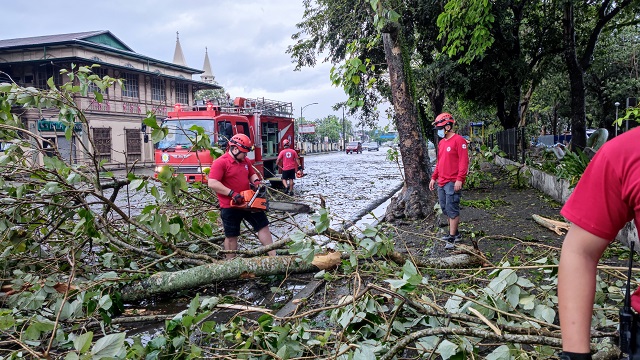Millions impacted by super typhoon in Philippines
Red Cross Canada | December 22, 2021
 On December 16, Typhoon Rai (locally named Odette) hit eastern Philippines, leaving massive destruction in its wake. This storm is one of the world’s strongest of 2021 and has devastated missions of people with torrential rains and flash floods.
On December 16, Typhoon Rai (locally named Odette) hit eastern Philippines, leaving massive destruction in its wake. This storm is one of the world’s strongest of 2021 and has devastated missions of people with torrential rains and flash floods.More than 1.8 million people, mostly from eastern coastal areas, were severely affected with their homes, infrastructure, and large land areas substantially damaged, and crops destroyed. Hundreds of thousands of people remain without electricity and access to basic amenities and food.
The impact of COVID-19 has also left many households with little economic security, and disasters such as this further compound these impacts. Many communities are only slowly recovering from the eight consecutive storms that battered the country late last year.
How the Red Cross is helping
Before the storm made landfall, the Philippine Red Cross was already supporting people by pre-positioning emergency response teams, first aid, hygiene kits and other relief items as the storm approached.
Since the early hours following the typhoon, more than 4,500 trained Red Cross volunteers have been supporting response efforts in the country.
As of December 22, more than 90,000 people have been assisted in evacuation centres and affected areas. Roughly 15,000 relief items such as blankets, tarpaulins, shelter tool kits, mosquito nets and water containers have been distributed to affected families.
With the support of the International Federation of the Red Cross (IFRC) and other partners on the ground, the Philippine Red Cross is working on damage and needs assessments in affected areas.
The Canadian Red Cross has as longstanding partnership with the Philippine Red Cross. Following Typhoon Haiyan in 2013, support was mobilized to assist more than 1.3 million people. Canadian Red Cross sent our field hospital to support the health needs of those impacted. Following the emergency phase of the response, we provided training and supplies to the Philippine Red Cross to ensure the hospital could continue to be locally run.
The equipment, trained staff and volunteers have since deployed on many occasions to respond to disasters and disease outbreaks across the country, providing first aid and augmenting local health capacity. Tents from the field hospital and hospital beds have already been mobilized to support early relief efforts in response to the typhoon.
In addition to our support to Typhoon Haiyan response efforts, Canadian Red Cross has also been working on a five-year project with the Philippine Red Cross to strengthen their capacity to respond to disasters and bolster community resilience.
To further support the Philippine Red Cross emergency response capacity, the Canadian Red Cross worked in partnership with the International Committee of the Red Cross (ICRC), to establish Red Cross Action Teams made up of volunteers specializing in a variety of emergency response services.
The Canadian Red Cross Country Representative based in the Philippines is currently working closely with the Philippine Red Cross and other Red Cross Movement partners on how to best support relief efforts. We are also mobilizing funds to support the response and have personnel on standby ready to supported, as requested.
The Canadian Red Cross stands ready to send further support, including additional humanitarian specialists, if requested.
How you can help
Canadians wishing to help are encouraged to donate to the Philippines Typhoon Rai (Odette) Appeal online at www.redcross.ca, or by calling 1-800-418-1111.
Donations to the Canadian Red Cross will be used for immediate and ongoing relief efforts, long-term recovery, resiliency, and preparedness for future events in the Philippines and in and around impacted regions, including surrounding countries. These activities and the impacted areas may evolve based on emerging needs and subsequent disasters.
If you would like more information on the Canadian Red Cross’ work in Philippines following Typhoon Haiyan, please visit this page.
Regions
NationalAlberta
British Columbia
Manitoba
New Brunswick
Newfoundland and Labrador
Northwest Territories
Nova Scotia
Ontario
Prince Edward Island
Quebec
Saskatchewan
Nunavut
Yukon
Worldwide
Africa
Americas
Asia
Middle East and North Africa
Europe
Topics
Community HealthEmergencies and Disasters in Canada
Emergencies and Disasters Worldwide
Finding Family
First Aid and CPR
International Humanitarian Law
Migrant and Refugee Services
Our Impact on the Ground
Philanthropy News
Violence, Bullying and Abuse Prevention
Volunteer
Water Safety
Youth
Indigenous Communities
Maternal Newborn and Child Health
Refugee Crisis
Refugee Arrival
